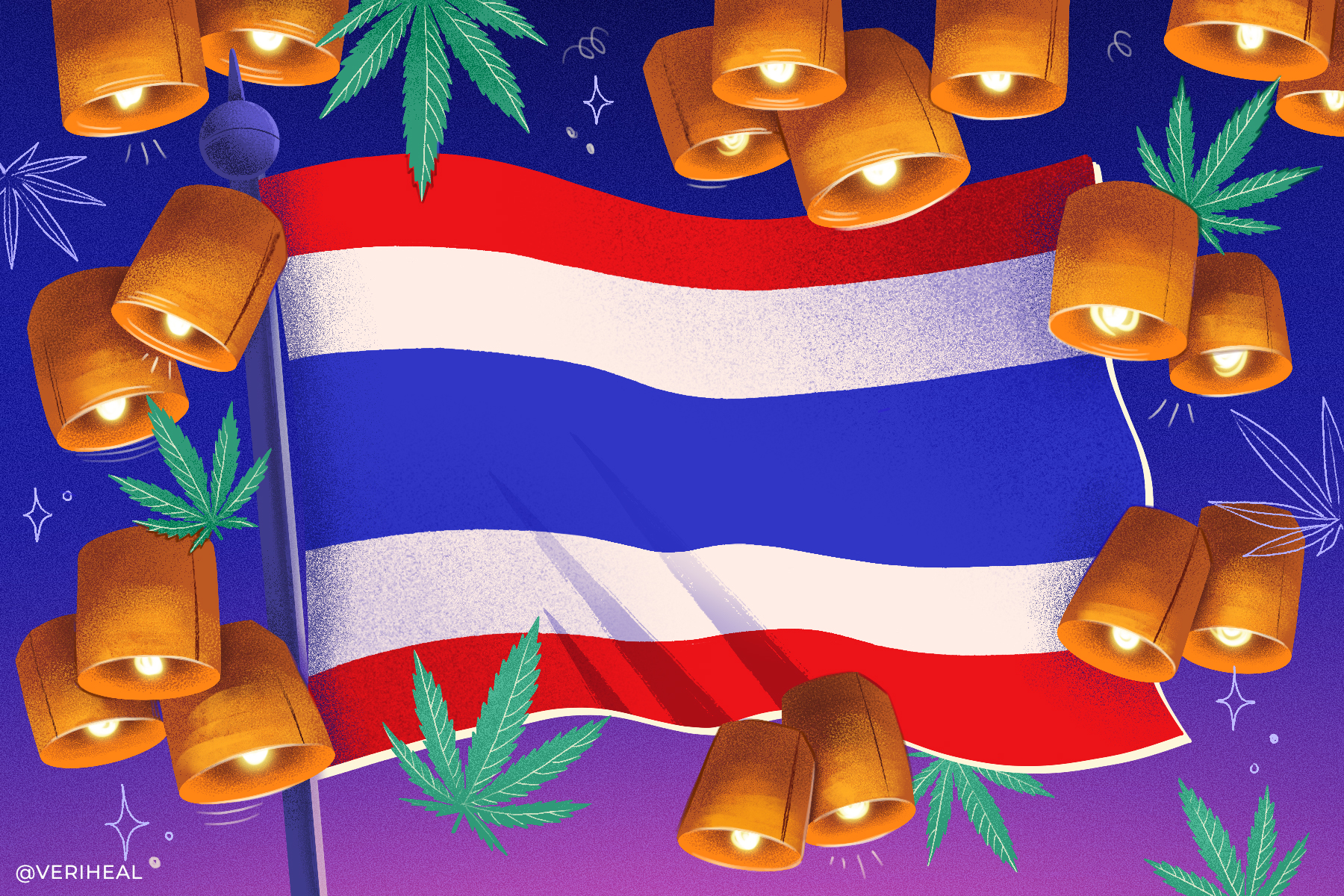Cannabis shop owners in Thailand have been cautioned against using traditional doctors to sidestep the ban on in-store recreational smoking. The warning was issued on Sunday, Nov. 27 by the Public Health Ministry, the government department tasked with managing and overseeing the kingdom’s public health.
Members of the Thai governmental body were prompted to issue the warning after several cannabis shops scattered across Bangkok’s famous Khaosan Road employed traditional doctors to work at their Amsterdam-inspired cafes. Despite being instructed by Public Health Minister Anutin Charnvirakul to abide by the law, numerous cannabis shop owners in Thailand are taking advantage of certain loopholes.
Once upon a time, Thailand was renowned for having some of the harshest drug policies in the world. Things have since changed, with cannabis being removed from the list of narcotics in June of this year. Recreational production and consumption remain illegal under the decriminalization law; only medical production and use are allowed.
Charnavirakul, who also serves as the Deputy Prime Minister of Thailand, signed a measure in February eliminating cannabis from the Southeast Asian country’s list of controlled drugs. The ministry has faced an uphill battle to prevent uncontrolled recreational use of the plant since legalization transpired in early 2022.
“The ministry did not campaign for people to use cannabis for recreation, so they cannot smoke the decriminalized herb in stores,” he told reporters, adding that lawmakers will supervise cannabis use.
About Thailand’s Cannabis Law
Thailand legalized medical cannabis back in 2018, when it became the first country in Asia to permit the herb’s use for medicinal and industrial purposes. In February 2021, the use of cannabis in food and beverages was also legalized, so long as the tetrahydrocannabinol (THC) content rests at 0.2% or less. THC is the primary psychotropic constituent in the marijuana plant.
Why You Should Get Your Medical Marijuana Card
Veriheal has satisfied millions of patients nationwide by giving them access to these benefits
- Larger purchase limits
- Peace of mind
- Enhanced legal protection
- Access to higher potency strains
- Save up to 25% on cannabis purchases
- Skip the line at the dispensary
Then, on June 9 of this year, Thai lawmakers decriminalized cannabis. The law, which banished the plant from the country’s category five narcotics list, thrust Thailand into the limelight as the first Southeast Asian country to enact decriminalization. Although the progress is promising, cannabis decriminalization has left many shop owners and consumers unsure about their rights.
Based on regulations outlined by the Department of Thai Traditional and Alternative Medicine, consumers can legally smoke cannabis inside stores that are permitted to function as medical facilities. Thailand’s cannabis law also stipulates that public cannabis consumption is prohibited; anyone who is caught doing so could be sentenced to three months behind bars and be forced to pay a 25,000 Baht penalty. Extracts with a THC content exceeding 0.2% are still illegal in Thailand.
In an effort to stay on top of compliance issues, department director-general Thongchai Lertvilairattanapong has tasked his staff with carrying out store surveys. Lawmakers are now waiting for the verdict on a chunk of legislation that would provide strict oversight and control of cannabis consumption and trade. However, some doctors and MPs are desperately urging for Thailand’s cannabis law to be rescinded.
Tourists Should Read Up on Thailand’s Cannabis Rules
Staying up-to-date with Thailand’s cannabis laws is essential for foreigners who embark on a trip to the ocean-kissed kingdom. It is especially important to avoid leaving the country with cannabis or hemp. In July, a 25-year-old Brazilian student was arrested in Bali, Indonesia for illegally traveling with 9.1 grams of cannabis that he had purchased in Thailand.
The Thai government has ventured down the route of cannabis decriminalization as a way of boosting tourism revenue following the COVID-19 pandemic, which severely dented the country’s tourism-dependent economy. Of all the tourist hotspots in Thailand, Koh Samui is one of the most popular among tourists. The second-largest island is home to a wide variety of cannabis dispensaries.
Thailand’s Ministry of Public Health aims to encourage the use of cannabis for medical and health purposes. Possession and consumption are limited to people aged 20 years and above; younger consumers can obtain the plant with a doctor’s permission. It is against the law to import cannabis and hemp extracts, cannabis and hemp parts, and all hemp-derived products. However, households can legally cultivate plants at home and cannabis farming activities can be conducted by permit-holding companies.
Although cannabis has been decriminalized across Thailand, the health minister is discouraging tourists from visiting the island-peppered territory for the sole purpose of smoking cannabis. Nonetheless, the Thai Tourism Authority has released a series of guidebooks promoting various cannabis-focused tourism destinations to foreigners.
Author, Share & Comments















